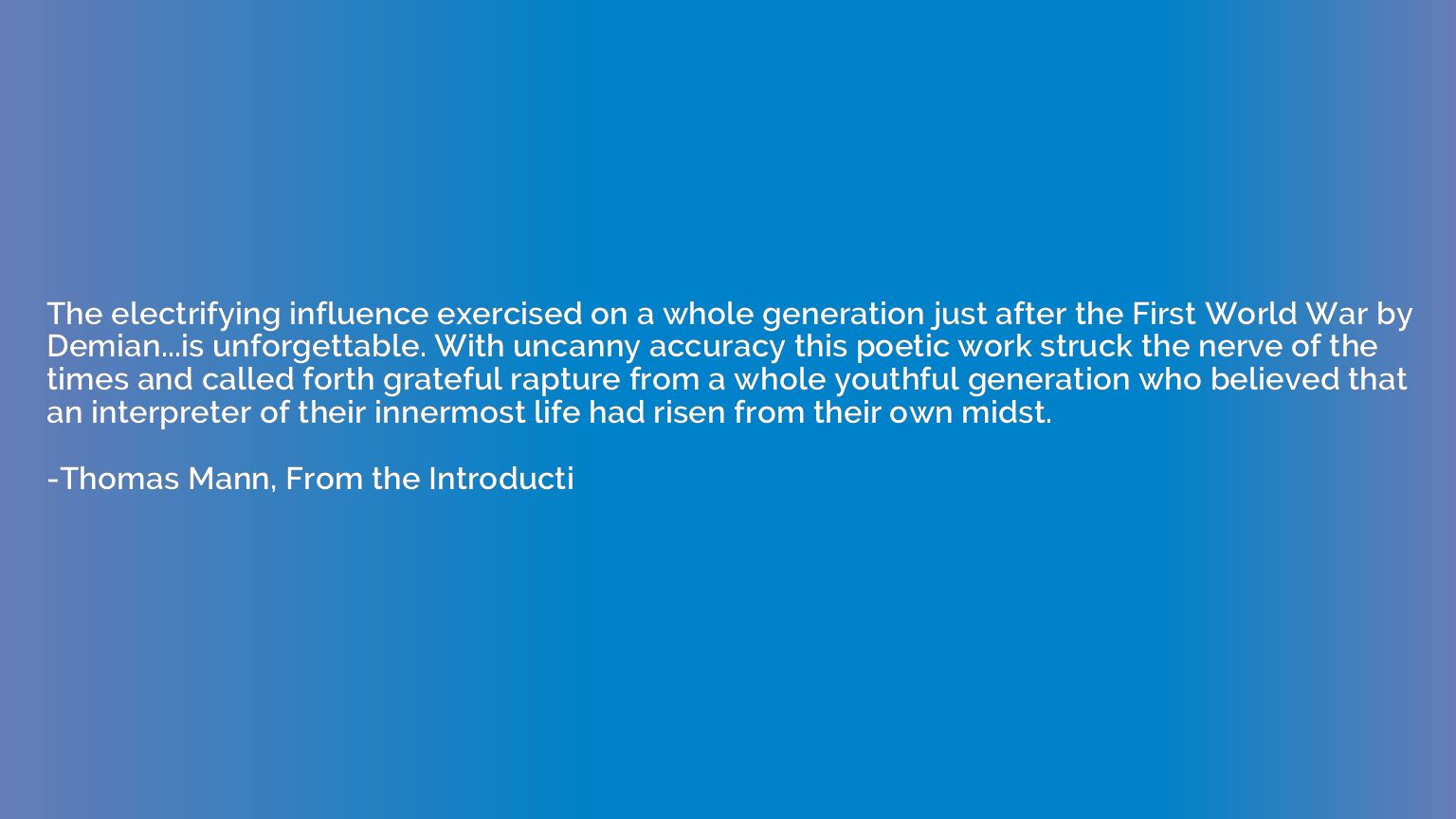Thomas Mann, From the Introducti Quotes
A collection of quotes by Thomas Mann, From the Introducti.
Thomas Mann (1875-1955) was a German novelist, essayist, and Nobel laureate, widely recognized as one of the most important figures in twentieth-century German literature. Born in Lübeck, Germany, Mann was raised in a prosperous bourgeois family. His father, a successful grain merchant, provided him with a privileged upbringing and access to a broad education.
Mann began his writing career as a journalist, but soon turned to fiction. His breakthrough came with the publication of the novel "Buddenbrooks" in 1901, which established his reputation as a skilled observer of the German bourgeoisie. This early work was followed by a series of influential novels, including "The Magic Mountain" (1924), a profound exploration of the human condition set in a tuberculosis sanatorium.
Throughout his writing, Mann demonstrated a keen eye for social criticism and a deep interest in the complex relationships between art, politics, and morality. His works often tackled pressing issues of his time, such as the rise of Nazism, the decay of traditional values, and the tensions between individual freedom and societal expectations.
In 1929, Mann was awarded the Nobel Prize in Literature for his outstanding literary achievement. However, due to his opposition to the Nazi regime, he was forced into exile in Switzerland during the 1930s, and later settled in the United States. It was during this time that he actively voiced his concerns about totalitarianism and the dangers of fascism.
Thomas Mann's work continues to be widely studied and appreciated for its intricate prose, psychological depth, and profound insights into the human experience. His legacy as a prominent figure of German literature endures, and his writings remain influential and relevant to this day.



